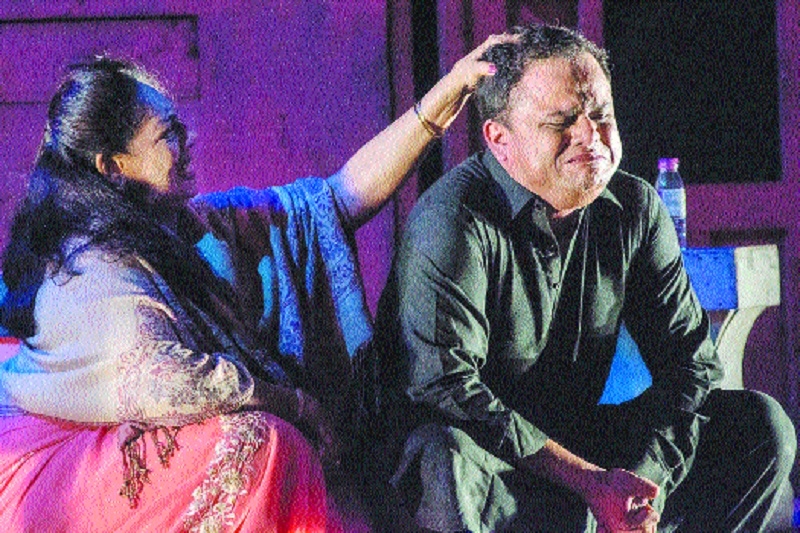‘Cinemar Moto’, using representative but contrasting voices
| Date :16-Sep-2019 |

Bratya Basu and Anasuya Majumder in a scene from the drama ‘Cinemar Moto’.
By Dr Supantha Bhattacharyya :
The second evening of the Bengali theatre festival, hosted by Bengali Association and Bengali Education Society and dedicated to the multifaceted film/theatre personality-cum-state minister Bratya Basu, showcased his 2013 hit play ‘Cinemar Moto’ (Just like the Movies). While yesterday’s opener ‘Adyo Shesh Rajani’ tackled the issue within the context of the 1970s group theatre, ‘Cinemar Moto’ situates it within mainstream cinema. The core message is the same in both: the slow asphyxiation of the arts due to repetition and the reluctance of artists to step out of their comfort zones.
“In Bengal, the visual medium of celluloid is an important centre of emotional and passionate attraction. Cinemar Moto represents a way of life intimately linked to the art form of celluloid. It is a present-day theatrical utterance of love for, and resistance to celluloid, which Bengalis and communities of eastern India strongly identify with,” Basu had agreed in an interview. Using three representative but contrasting voices from the dysfunctional Dattagupta family -- Jayanti from old commercial Bengali cinema, Dipayan from parallel Bengali films, and Prithvijit, a youngster unwilling to be bracketed into any category and follow only his own heart -- the script interrogates multiple perspectives on both familial dynamics as well as the evolution of Bangla cinema especially in the post Uttamkumar era. ‘Cinemar Moto’ uses timeless sequences and songs from Bengali cinema at critical junctures.
A composite multilevel set and mood lighting in combination with some brilliant performances by Bratya himself, the always reliable Anasuya Majumdar, Shekhar Samaddar, Poulami Basu, and Rishabh Basu escalate the production to those dizzying levels for which Kolkata professional theatre is famous. Just like in drama and cinema, there are no permanent full stops in life either. The organisers deserve full-on kudos for exposing Nagpur audiences to such aesthetically satisfying and intellectually stimulating contemporary drama every year!